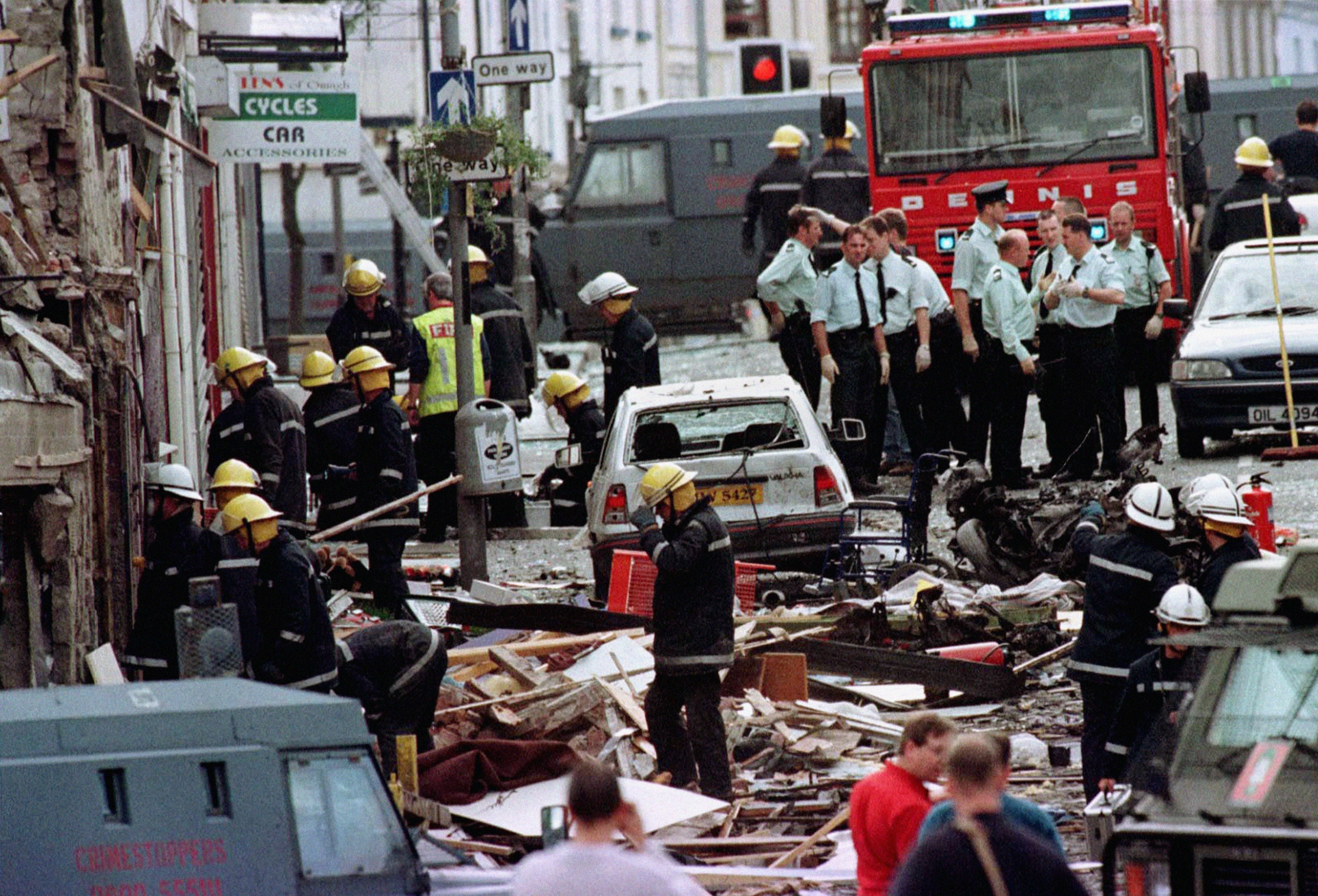‘Real prospect’ Omagh bombing could have been prevented, High Court rules
Mr Justice Mark Horner recommends a human rights compliant probe into 1998 attack

Your support helps us to tell the story
From reproductive rights to climate change to Big Tech, The Independent is on the ground when the story is developing. Whether it's investigating the financials of Elon Musk's pro-Trump PAC or producing our latest documentary, 'The A Word', which shines a light on the American women fighting for reproductive rights, we know how important it is to parse out the facts from the messaging.
At such a critical moment in US history, we need reporters on the ground. Your donation allows us to keep sending journalists to speak to both sides of the story.
The Independent is trusted by Americans across the entire political spectrum. And unlike many other quality news outlets, we choose not to lock Americans out of our reporting and analysis with paywalls. We believe quality journalism should be available to everyone, paid for by those who can afford it.
Your support makes all the difference.A High Court judge in Belfast has ruled there was a “real prospect” the Omagh bombing could have been prevented.
Mr Justice Mark Horner recommended the UK government carries out a human rights compliant investigation into the 1998 Real IRA attack, and encouraged the Irish government to do the same.
The attack killed 29 people, including a woman pregnant with twins.
Judge Horner told Belfast High Court on Friday: “I am satisfied that certain grounds when considered separately or together give rise to plausible allegations that there was a real prospect of preventing the Omagh bombing.
“These grounds involve, inter alia, the consideration of terrorist activity on both sides of the border by prominent dissident terrorist republicans leading up to the Omagh bomb.
“I am therefore satisfied that the threshold under Article 2 ECHR (European Convention on Human Rights) to require the investigation of those allegations has been reached.”
Campaigners launched the legal challenge in 2013 to try to force an inquiry into what was the worst single atrocity of the Troubles. Michael Gallagher, whose son Aiden was killed in the bombing, launched the judicial review against the UK government’s refusal to order a public inquiry into security failings before the bombing.
Judge Horner noted he did not have the powers to order authorities in the Irish Republic to act, but said that he hoped its government would order a probe. The judge added that as he did not intend to be “prescriptive”, he was not going to order that the investigation be carried out as a public inquiry.
The judge said: “It is not within my power to order any type of investigation to take place in the Republic of Ireland but there is a real advantage in an Article 2 compliant investigation proceeding in the Republic of Ireland simultaneously with one in Northern Ireland.
“Any investigation will have to look specifically at the issue of whether a more proactive campaign of disruption, especially if coordinated north and south of the border, had a real prospect of preventing the Omagh bombing, and whether, without the benefit of hindsight, the potential advantages of taking a much more aggressive approach towards the suspected terrorists outweighed the potential disadvantages inherent in such an approach.”
Join our commenting forum
Join thought-provoking conversations, follow other Independent readers and see their replies
Comments